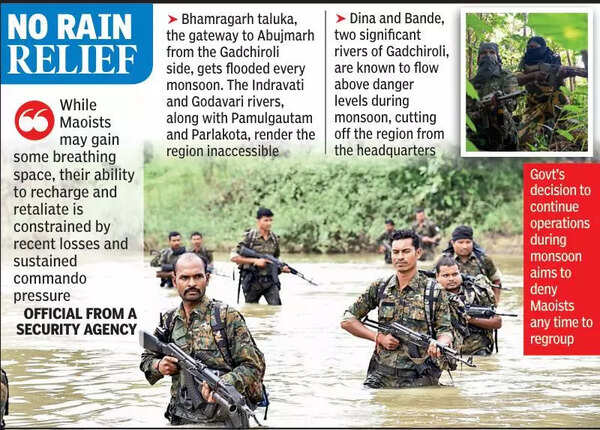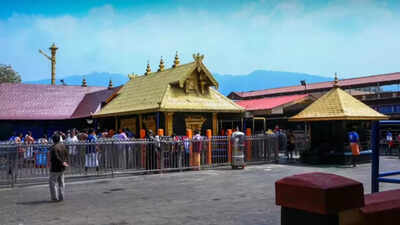Security forces in Maoist stronghold Abujmarh gear up to meet challenges of rain, floods | India News

NAGPUR: Monsoon fury will pose a major challenge for security forces as they continue operations in Maoist stronghold Abujmarh, with home minister Amit Shah’s “no respite” directive breaking tradition & pushing for year-round action in the guerrilla bastion.The rains were expected to give the last standing Maoist formations and top leadership a window between June and Sept to regroup, but Shah’s orders have dashed those hopes. The flooded rivers, rivulets, and nullahs of Abujmarh significantly hinder anti-Maoist operations by restricting movement, disrupting logistics, and reducing visibility – factors that provide the Maoists, many of whom are local tribals, a tactical edge.

Key rivers like Indravati, Parlakota, Pamulgautam, Godavari, and Pranhita near the Maharashtra-Chhattisgarh border, along with Dina and Bande in Gadchiroli, and Kotri and Doodh in Kanker, severely limit commando mobility. Godavari’s tributary, Shabari, and several nullahs in Gadchiroli and adjoining areas make it tough to penetrate deep into Maoist zones.Combat boots sink in wet soil and slip on slushy terrain, said an officer involved in operations. Another warned that sudden torrential rains could maroon troops or cut off rescue routes. Parts of Abujmarh in Bastar are impacted by the Indravati and Godavari rivers, while Kanker’s side faces isolation due to Doodh river and other rivulets. In Gadchiroli, Bhamragarh taluka, the gateway to Abujmarh, is often rendered inaccessible.Despite the hurdles, govt, relying on tech & improved infrastructure, is determined to deny Maoists their monsoon advantage and meet the March 2026 deadline to dismantle remaining guerrilla strongholds.





